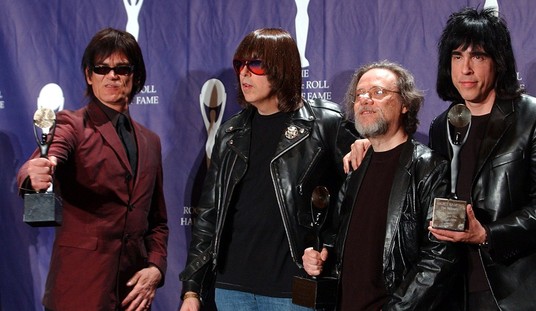“I hope the irony is not being lost on anyone that three liberal atheists are being sponsored, their event is being sponsored, by the most conservative groups on campus,” Dr. Peter Boghossian said. That statement kicked off an hour-long discussion (plus an hour of Q & A) on the question “Is Intersectionality a Religion?” The discussion took place at Portland State University a couple weeks ago, just days after another group hosted a talk with former Google engineer James Damore.
Almost exactly a year ago I pointed out a piece by Andrew Sullivan (yes, that Andrew Sullivan) on the same topic. This discussion, moderated by Dr. Boghossian, takes those ideas a lot farther. His two panelists, Helen Pluckrose and Dr. James Lindsay, do most of the talking but they’ve clearly put a lot of thought into this. I clicked on the video thinking it might hold my interest for a couple minutes and wound up watching the whole thing (roughly 2 hours). I’m not guaranteeing you’ll feel the same, of course, but if the topic interests you this is at least worth a look.
The first 10-11 minutes of the discussion is a description of the concept of intersectionality, and its history. So if you’ve got the basics you can skip ahead. Simply put, intersectionality is the idea that people who fit into more than one category of potential social oppression have a unique perspective and experience which is only truly shared by other people in their category. This concept has all sorts of postmodern epistemological implications, e.g. whether people in different categories can ever actually understand what someone in a different group experiences, whether there is truth beyond one’s point of view, and whether people within certain categories can be expected to have similar responses to political and cultural issues.
All of those issues come up in this discussion but the thread that ties them all together is that intersectionality functions as a religion. Of course, this is coming from three atheists so you may find their dismissive views of religion in general off-putting (or you may not). The point here is to note how intersectionality functions as a religion in the sense that it creates an in-group, an out-group and various social mechanisms to enforce the boundaries between the two. Some samples of the discussion:
- Dr. Lindsay: “They tend to focus on moral purity for the in-group. They tend to demonize the out-group. They especially demonize heretics or blasphemers or anyone who goes too far outside that dogmatic structure of belief and threatens it. Those people are often excommunicated.
- Helen Pluckrose: “People associate with God all that is good so when atheists say they don’t believe in God they are very often understood to say ‘I don’t believe in good.’…This is also very commonly seen in social-justice movements where to say ‘I don’t like this approach to equality’ is not to say ‘Well, I prefer a universal liberal’ or ‘I am a conservative with a libertarian bent who wants everybody to have the same opportunities,’ it’s essentially to say ‘I am a Nazi.'”
- Dr. Boghossian: “In religion, they have original sin, in Christianity, I’m thinking the Abrahamic tradition…What does intersectionality have?
Pluckrose: “Privilege.”
The panel goes on to point out many other points of similarity to aspects of religion, e.g. a conversion experience (to intersectionality) is described as “becoming woke.” There is a parallel to pure evil, which is capital H hate. There is even a kind of secular utopian heaven in the distant future, a world without hate and haters toward which the moral arc of the universe is bending.
Again, if you have religious views some of this analysis may be off-putting but I think the underlying idea which is mentioned only briefly, is that intersectionality is a substitute religion. Lack of faith doesn’t always make people secular. It often makes them seek out substitutes which provide some of the same things found in traditional religions, i.e. an all-encompassing view of the world, a sense of right and wrong, a place in which they belong and feel at home, etc. As the panelists acknowledge, those are real human needs that almost everyone feels in some sense or another. Intersectionality is just a new faith on the scene, one that seems to appeal to a lot of young people on the far left.
There’s a lot more here. If this is the sort of discussion you find interesting, this is a pretty good example. (Note: There is another version of this video which has more views but the sound quality is pretty bad so I’m sticking with this clip.)







Join the conversation as a VIP Member